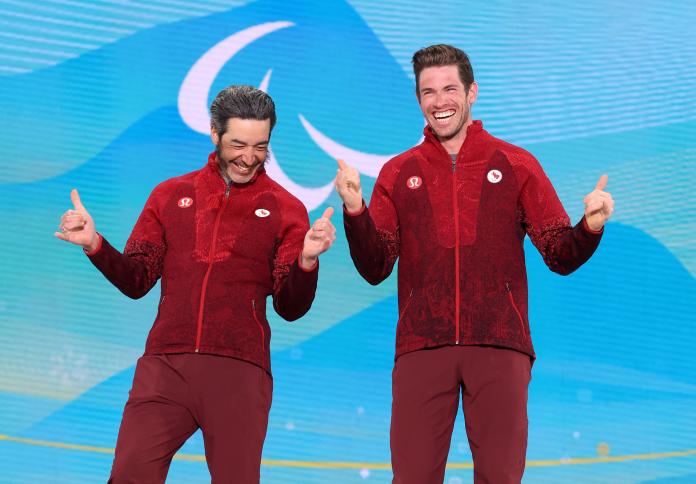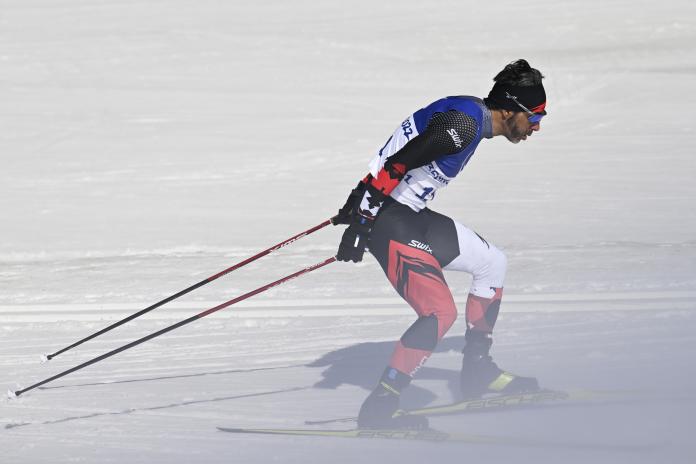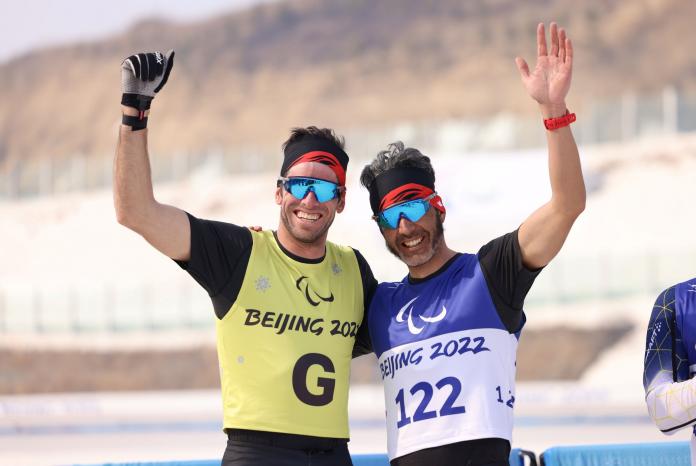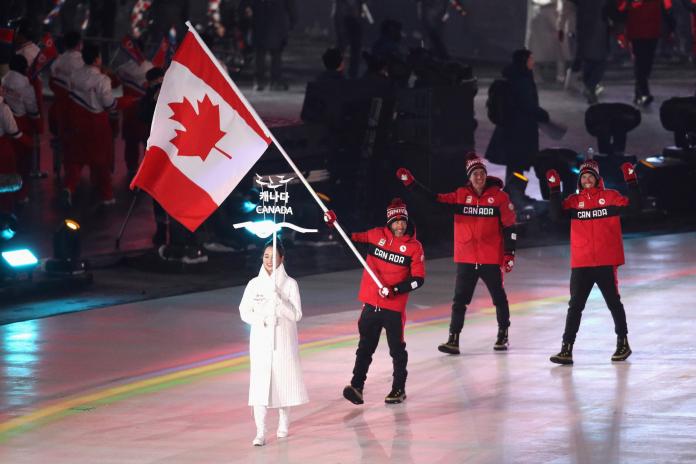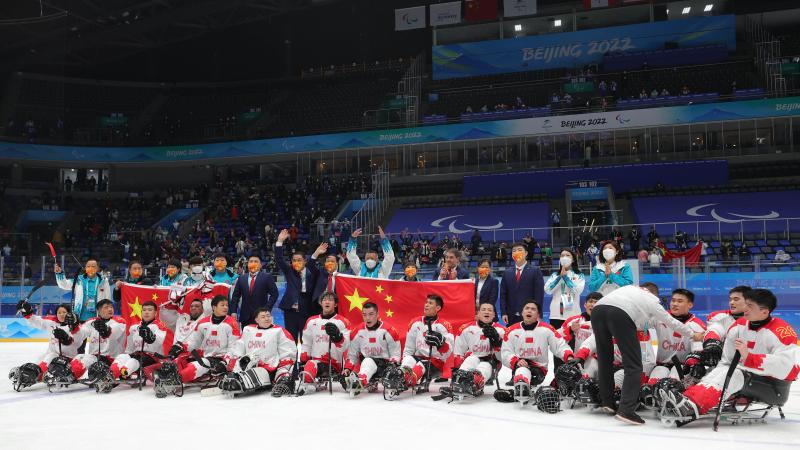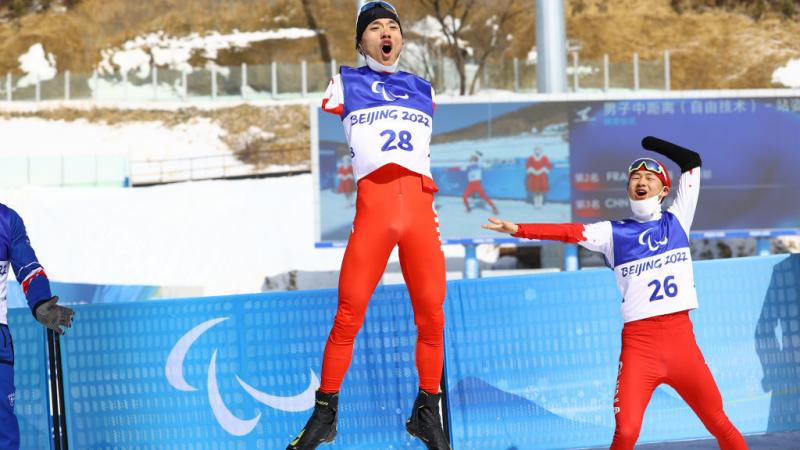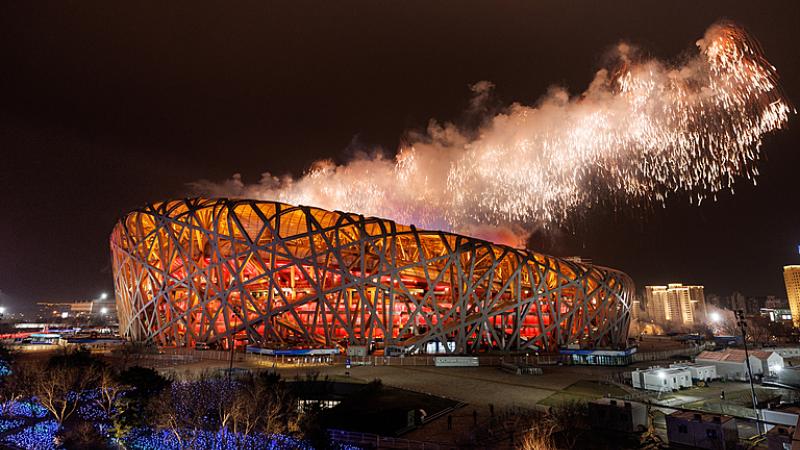Beijing 2022 one year on: Record-setting McKeever reflects on what matters most
The Canadian Para cross-country skier Brian McKeever retired after the Beijing 2022 Paralympic Winter Games, having won 20 Paralympic medals in the men's vision impairment class 04 Mar 2023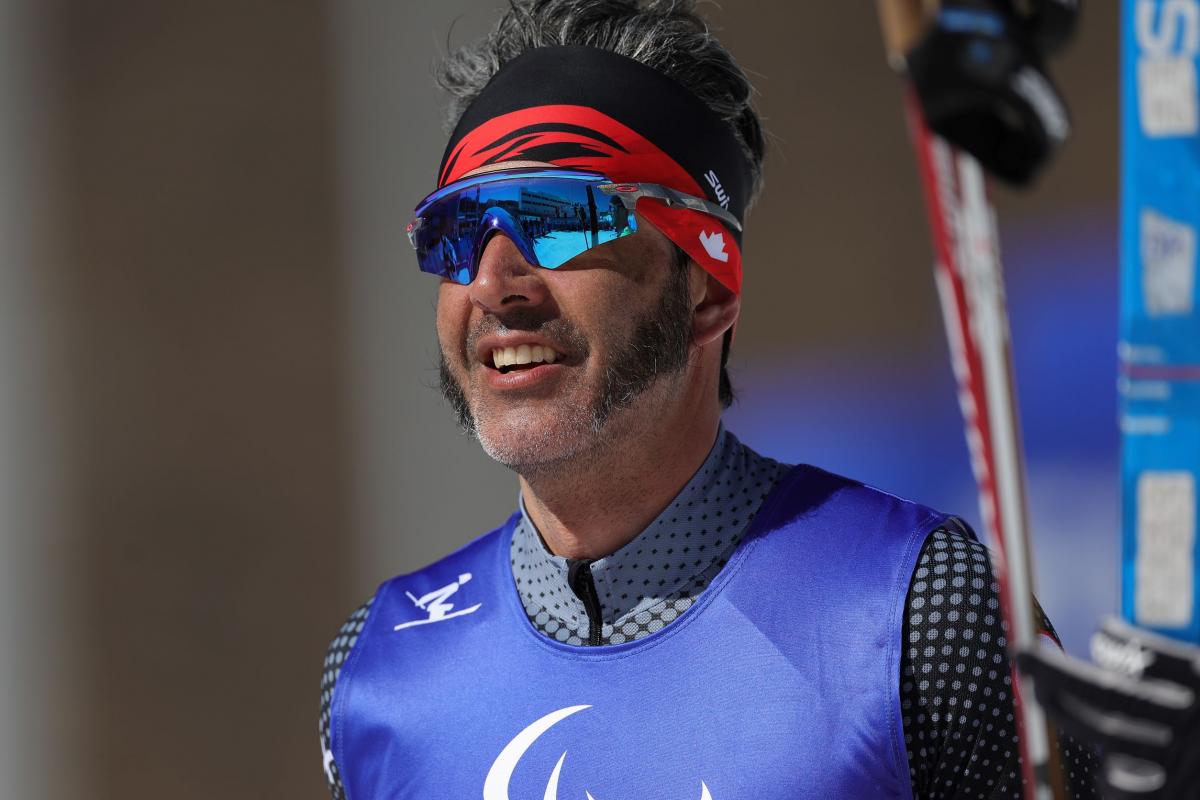
One year ago and competing in his final Games, two decades after his first, Brian McKeever claimed his 16th Paralympic gold medal to equal the tally for the most men's Winter Paralympic titles.
The Canadian Para cross-country skier, who started to lose his vision as a teenager due to Stargardt disease, won three gold medals at the Beijing 2022 Paralympic Winter Games to crown a Paralympic career like no other, having made his Games debut at Salt Lake City 2002.
Taking the titles in long distance classic (20km), sprint free (1.3km) and middle distance free (12.5km), McKeever drew level with German Para alpine icon Gerd Schoenfelder for the most men's Winter Paralympic wins.
The 20-time Paralympic medallist then said he did not think too much about records. With a little perspective, one year on, that has not changed.
"Not for one minute. No. I meant what I said then, that it was never important to me," McKeever said.
"I couldn't have cared less what the number was next to that medal count, or even if there were medals. It was entirely for the exploration of how far I could take it. How good could I be? Could I push myself to be better each year? And what did that look like? Obviously, having a celebration at the end is always nice, but it wasn't the goal."
The goal, McKeever said, is about trying to achieve a certain feeling, "that I could have the best race possible on that day. And to perform on demand, like at a Games, to achieve that peak and to hit all the aspects that I could."
Perfect race vs gold medal
The 43-year-old, who retired from his competitive career after the 2021-22 season, said he would rather have the feeling of doing a perfect race than getting another gold medal around his neck.
"If you can be honest with yourself, that you did everything possible, and that was the best that you could possibly do on that day, then you have to be satisfied," McKeever said. "I do believe that you can be disappointed a little bit, and wish that you could have achieved more, but you still have to be satisfied with how you performed, if that was the best you could do. I think those two thoughts can exist independently of each other in your mind.
"At the end of the day, the result is not up to us as athletes. You can have the best race of your life and still lose, because somebody had a better one."
Of McKeever's three gold medal-winning races at Beijing 2022, it was the sprint that gave him the best feeling.
"I hate sprints," the four-time Paralympic sprint champion said. "I'm not suited to them, I don't find them fun, I find them stressful.
"We always come up with these plans and then we change them eight different times in the day. We feel like we're reacting a lot of the time, as opposed to making the race, and I hate that feeling. It's scrambly, it's not who I am, it's not as calculating as I normally am."
One year ago, however, in one of the last events of his active career, McKeever and his guide Russell Kennedy felt like they had nailed it, beating USA's runner-up Jake Adicoff and bronze medallist Zebastian Modin of Sweden to the title.
"We came up with a very good plan, we stuck with it, and we had all sorts of ideas of where we would move and how we would race it, and with our tactics, between Russell and I, and how that would look," McKeever said.
Inspired by that, he and middle-distance guide Graham Nishikawa did the same thing in the 12.5km race to claim his final Paralympic title.
"We decided what the tactics were, how I would use him best in the race and how we would stick with a very specific plan, and both of those (races) were, let's say, calculated affairs," McKeever said. "They were very cold, very well executed races."
Race first, reminisce later
Despite constant reminders, McKeever refused to let any emotions about it being his last Paralympic performance ruin his farewell show in the mountains of Zhangjiakou, China, between 6 and 13 March last year.
"It honestly felt like any other championship, because that's how it had to be," he said. "If you try to make it into something else, then maybe you don't perform the way you want. So it was more about making sure that I stuck within my process and not being distracted by anything else.
"That's the best advice I can give to my team as well; it doesn't really matter what else is going on in your life, in the world, in whatever. If you're looking to get one performance on a day, you have to focus on your process and try to ignore everything else. That's what I tried to do."
Other side of the fence
"The team" is Canada's Para Nordic ski team, which McKeever took over as head coach shortly after finishing his competitive career, replacing his older brother Robin McKeever.
"As soon as the season was over, I started filling out applications and doing the interview process and started working immediately with the team," said McKeever, who shares the responsibilities with Bjorn Taylor.
"We haven't changed too much, the philosophies have remained very similar. But there have been some small shifts and some focus changes and, hopefully, I can add to what Robin brought, and help the athletes achieve even more than they already have. In the end, it's their careers. I just hope I can help guide it a little bit."
The best thing following retirement is being able to focus fully on others and their results, McKeever said.
"That is definitely where I was in the last four years, before I stopped. I was almost more excited for my friends and teammates than I was for myself, which is good," he said. "It's nice to be on the other side of the fence now, and just cheering."
The more difficult part, he added, is that it is no longer only in his hands and legs.
"The hardest thing is to know that I have no control over it now, that it's all up to somebody else. I can just give advice and, at the end of the day, they're the ones that have to execute it," McKeever said.
"But I also love hearing when they come up with their own ideas, as athletes, and say, 'Hey, I tried this, and it was so good, it worked really well'. To see their growth is the most exciting thing now, so with that going forward, I don't really miss much about racing. That's one of the better parts about being on the other side of the fence."
Going for gold No. 17?
Even though many fans still hope to see McKeever going for a 17th title at the Milano Cortina 2026 Paralympic Winter Games, he said there is little chance he will switch to the other side of that fence again.
"It (Beijing 2022) definitely was my last Paralympics. That hasn't changed."
He said his memories from Beijing 2022 were of mixed emotions, after everything that happened in the world in early March last year.
"On one hand it's the end of a long career. On the other hand, it's the beginning of a new one. Also, there was so much extra going on around it," he said. "We would like to think we are hopefully moving past the pandemic and back into more of what we would say is normal.
"But we are still suffering from having a major war that is still affecting many millions of people, and many of our friends and athletes.
"When you realise the impact and that people have been displaced and affected and lives being shattered, it makes sports seem a little less important, that's for sure."

 Facebook
Facebook
 Instagram
Instagram
 Twitter
Twitter
 Youtube
Youtube





